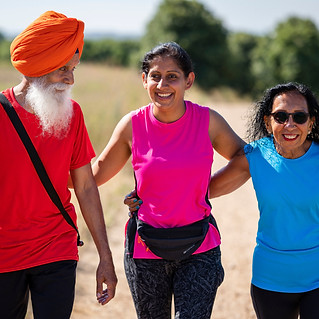
Loneliness at school
A guide for learners and educators
We all feel lonely at times – it’s a natural human emotion. We're biologically wired for social contact, and loneliness is our signal that we need more. We know loneliness is a huge issue affecting young people. Whilst loneliness can be a normal part of life if it is transient and not experienced too frequently, chronic loneliness can have a profoundly negative effect on the health of all ages and can be considered the 'social equivalent of physical pain'. More research is needed on loneliness in children, but current data shows that over 45% of children say they feel lonely 'often' or 'some of the time'.
How we work with schools
Marmalade Trust is dedicated to raising awareness of loneliness and empowering everyone to make connections. We work closely with schools, offering FREE, interactive, and engaging lesson plans, assemblies, and resources designed by teachers for teachers. Our materials include fun printables for classrooms, as well as quizzes and guides to help EYFS, primary, and secondary learners deepen their understanding of loneliness. We hope these carefully designed resources inspire both teachers and learners!
Quick guide to loneliness
-
It’s completely natural - We all feel lonely at times, it’s a natural human emotion. We all need to feel connected to other people. Loneliness is the unsettling feeling we get when this need is not being met. Just like feeling thirsty is a sign to grab a drink, loneliness is our body's way of telling us we need more meaningful connections.
-
It’s not just for older people - 16-24-year-olds are the loneliest age group in the UK. 45% of adults in England (25 million people) say they feel occasionally, sometimes or often lonely.
-
It’s not the same as being alone - We might feel lonely because we're not having much contact with other people, or because the contact doesn't feel meaningful to us. You don’t have to be on your own to feel lonely - you might feel lonely with friends or family, on social media, or at school. You can feel lonely if you feel like you are not being understood by those around you.
-
It’s not embarrassing - There’s nothing wrong or shameful about loneliness. It’s best to use neutral or positive language to describe it. Using kind, accepting words to describe loneliness can help further remove the stigma.
-
It’s fixable - However horrible it can feel when you’re in it, there is always something you can do to feel better. Most loneliness is temporary. Tell someone you trust how you’re feeling, think about what you need (we are all different) and make a plan to start getting those social connections you need.
-
It’s not a mental health condition - Loneliness is a normal emotion, like excitement or anger. If you’ve felt lonely for a long time, it can start to affect your mental and physical health but it’s important to know that first and foremost, it’s a natural feeling.
How can we manage feelings of loneliness?
Be kind to yourself
Remember that loneliness is a very normal human emotion that lots of us experience. It’s nothing to be embarrassed of. We all need to feel connected to other people.
Try to be open
The opposite to loneliness is meaningful connection. Try make contact with people you haven't spoken to in a while and see how they are. Just send them a message or comment on their social posts to start a conversation. They're probably wondering what you're up to too. You could suggest walking to school together, or meeting up at the weekend.
Try not to compare
We all do this from time to time. Social media can make it seem like we’re the only ones feeling lonely, but it’s important to remember that people often share a ‘highlights reel’ which doesn’t tell the whole story. You don’t know how other people feel when their social media feeds are turned off. Social media can be a great way to connect with others but notice how it makes you feel when you use it. Do you feel happier and more connected, or the opposite? Instead of scrolling through other people’s timelines, use social media to join new groups or like-minded communities so you feel part of something.
Go for a mindful walk
Just being outside and seeing other people can help. Look around you, concentrate on the sights, sounds and smells. You might notice something you've never seen before.
Take on a hobby
A great way to meet new people is to take up a hobby! What do you enjoy doing? There are YouTube videos for everything from yoga to gardening. Getting stuck into a project or hobby is a great way to occupy the mind and find people with similar interests to you.
.png)



.jpg)